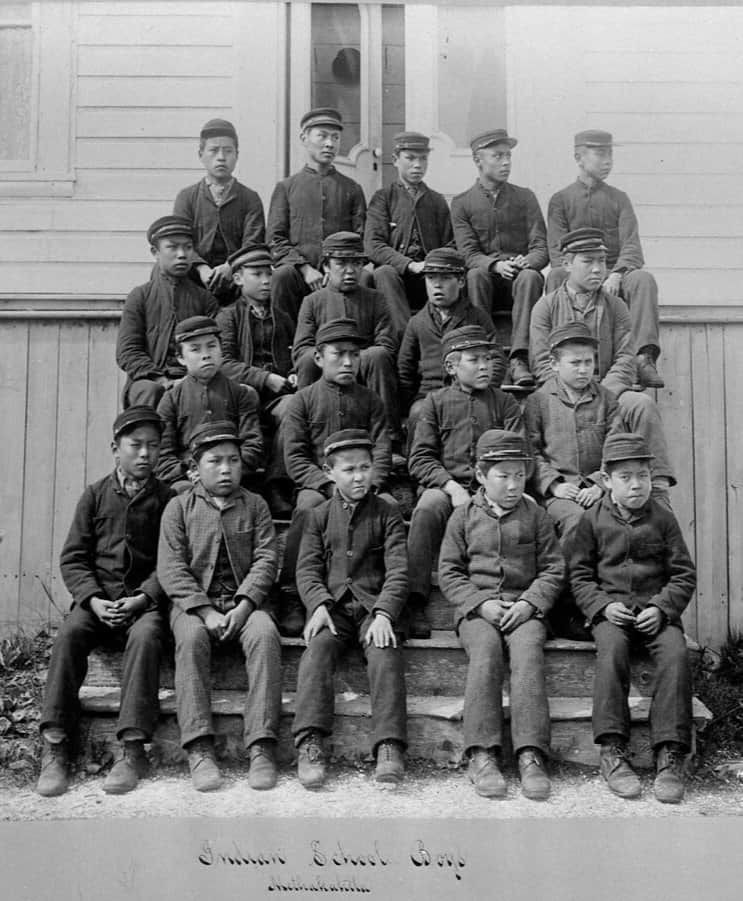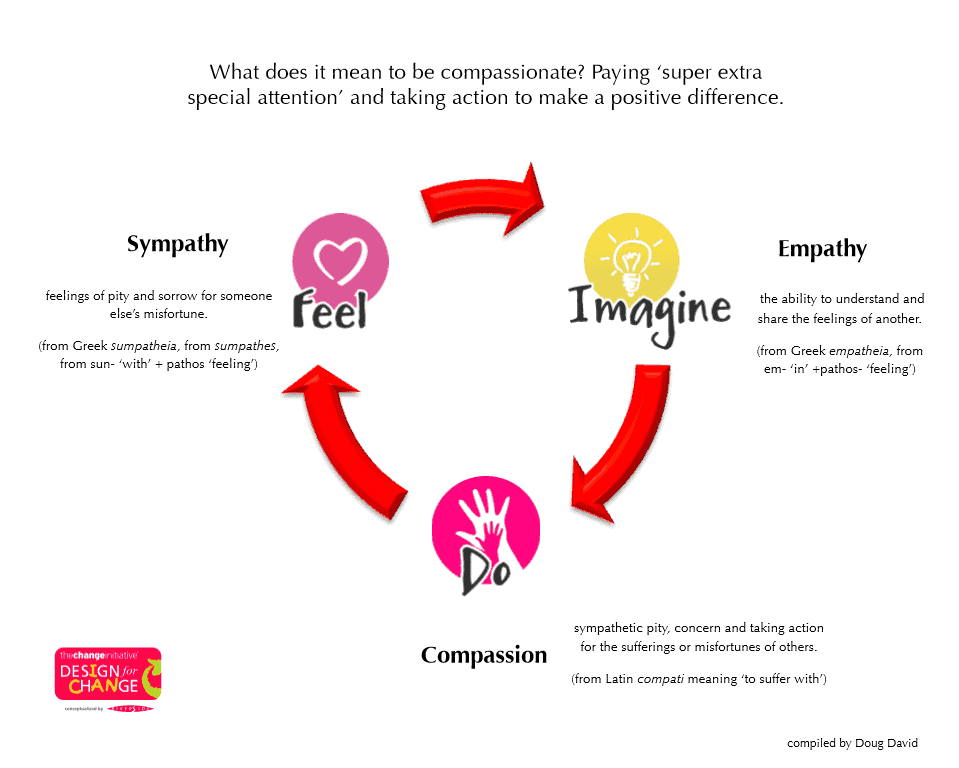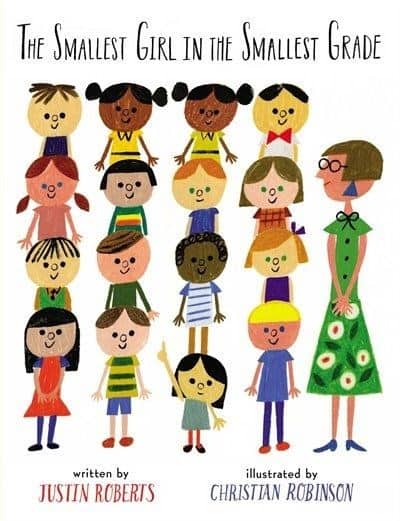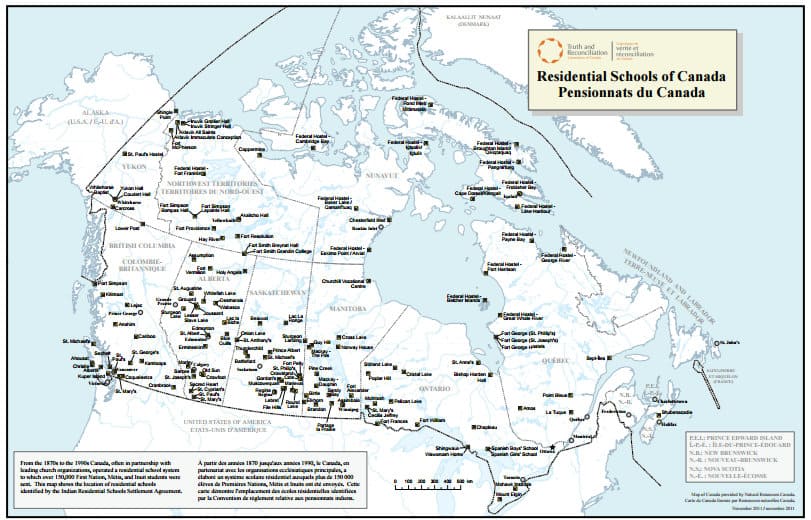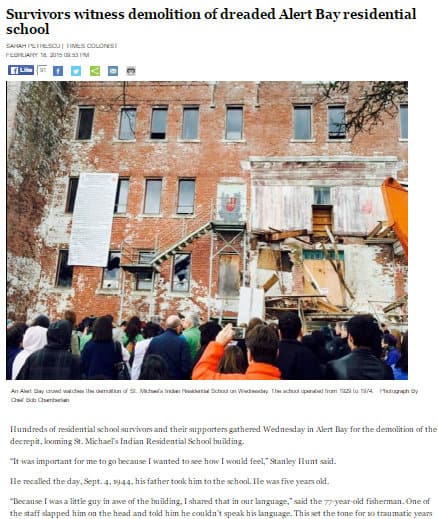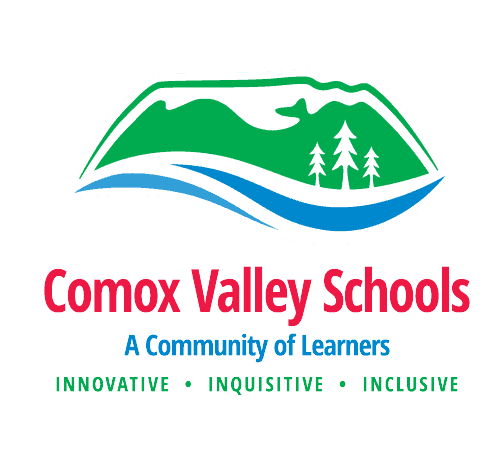Residential School Inquiry
Locally Developed Inquiry Lessons
The lesson series is good launching point to begin a study of Residential Schools. It begins with front-loading common language around sympathy, empathy and compassion. First co-constructing our thinking and defining these capacities, we then invite participants to look for evidence of compassion in video, photographs and story.
Next we have participants use their understanding of compassion to explore evidence of the Residential School experience. While viewing video clips, photographs, and other artefacts, participants are invited to ask questions, make connections, infer, think critically and communicate what they notice, think and wonder, with a compassionate lens.
We include talking circles as part of the process, to build community, creating a safe environment for sharing and exploring our thinking.
The inquiry leads to exploring the question “What is reconciliation?” How are reconciliation and compassion linked?
Created by Lynn Swift, Doug David, Gail Martindale, Sally Sheehan, Colleen Devlin, Denise Anderson
Connections to Redesigned Curriculum
- Grade 5 – Learning Standards Residential Schools Inquiry
- Grade 6 – RSI Learning Standards
- Grade 7 – RSI learning standards
Sample Letter to Parents
Assessment:
Post Assessment Reflection
Invite students to return to the pre-thinking mat (What do you know/wonder think about residential schools?)
Ask,
- How has your thinking shifted?
- What have you learned about residential schools?
- How can what we learn about residential schools help us to be more compassionate in our daily lives?
Lesson 1: What is Compassion?
Lesson Plan and Materials:
- Residential Schools Inquiry lesson 1 revised
- RS Inquiry driving question
- RSI lesson 1 learning intention
- Defining sympathy, empathy, compassion
- Compassion continuum 2
- Compassion think mats
Lesson 2: What is Residential School?
Lesson Plan and Materials:
Map of Residential Schools In Canada from the Truth and Reconciliation Commission – Permission is given on website to print this map.
Also see this Interactive Map and other Map Resources from Truth and Reconciliation Commission. Map
- Residential Schools Inquiry lesson 2 revised
- RS Inquiry driving question
- RSI lesson 2 learning target
- What I know about residential schools
- Residential Schools Inquiry pre-assessment mat (docx)
- RSI Boxing Thinking Mats 2
Lesson 3: St. Michael’s Decommissioning Ceremony
Lesson Plan and Materials:
- Residential Schools Inquiry Lesson 3 revised
- RS Inquiry driving question
- RSI lesson 3 learning target
- St. Michael’s demolition ceremony
- Times Colonist Article Boxing Strategy with Text
Click on picture below for link to original article…
Our Voices, Our Story, a film by Barb Cranmer
Below is the trailer to a 30 minute video
Our Voices, Our Stories – Trailer from Craven Studios on Vimeo.
Stephen Harper Apology
Lesson 4: What is Reconciliation?
Lesson Plan and Materials:
- Residential Schools Inquiry lesson 4 revised
- RS Inquiry driving question
- RSI lesson 4 learning target
What is Reconciliation? Justice Murray Sinclair
Also from Murray Sinclair from the Ottawa Citizen – Teaching about Aboriginals ‘Simply Wrong'” says Murray Sinclair
Student Voices:
Our Truth: The Youth Perspective on Residential School from TRC – CVR on Vimeo.
Some History
Survivor Stories
We have found the following from survivors and that some,
- want to talk to children and share their experiences contributing varying levels of information.
- change their minds and don’t want to talk about it anymore or do decide they want to talk it about at some point in their life.
- don’t want to talk about it all.
Please be considerate and compassionate to everyone’s journey and where they are on that path.
If you are unable to have a survivor or intergenerational survivor speak in your class, consider showing the following videos,
Project of Heart
Project Heart-Honouring Residential School Survivors from Ed Carswell on Vimeo.
Project Heart is the story of an extraordinary school event in Courtenay, B.C. Teacher Susan Leslie leads a school-wide project and ceremony to honour Indian residential school survivors. Leslie organizes storytelling circles, art and inquiry projects, and encourages students to create ceremonial blankets. Verna Flanders shares her experiences as a survivor of St. Michael’s Residential School in Alert Bay, B.C. Project Heart culminates with a school-wide Blanketing Ceremony to honour Verna and four other survivors (Stan Frank, Valerie Frank, Melvin Price, and Dean Littlelight).
This film was inspired in part by Canada’s Truth and Reconciliation events. “Reconciliation is an opportunity for all Canadians to renew relationships, based on a shared understanding of our histories and our cultures and walk a path together for a shared tomorrow.”
Our Stories, Our strength
Two survivors share part of their story
Our Stories… Our Strength from Legacy of Hope Foundation on Vimeo.
More stories from the Where are the Children, Our Stories, Our Strength website. Preview these stories before showing them to students!
Check out this link for great websites to help you with your teaching, and knowledge of residential schools and aboriginal history in Canada. There are also some examples of reconciliation.

